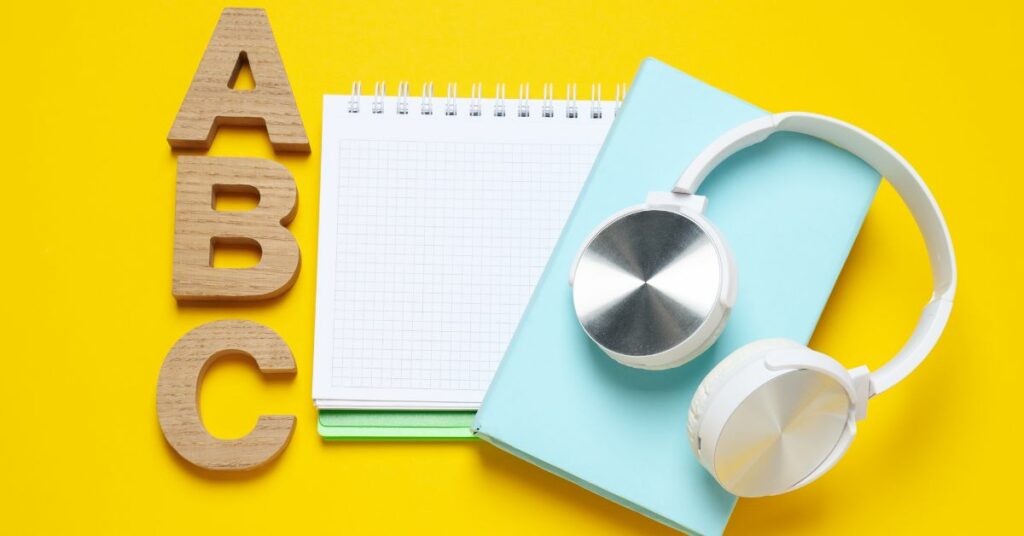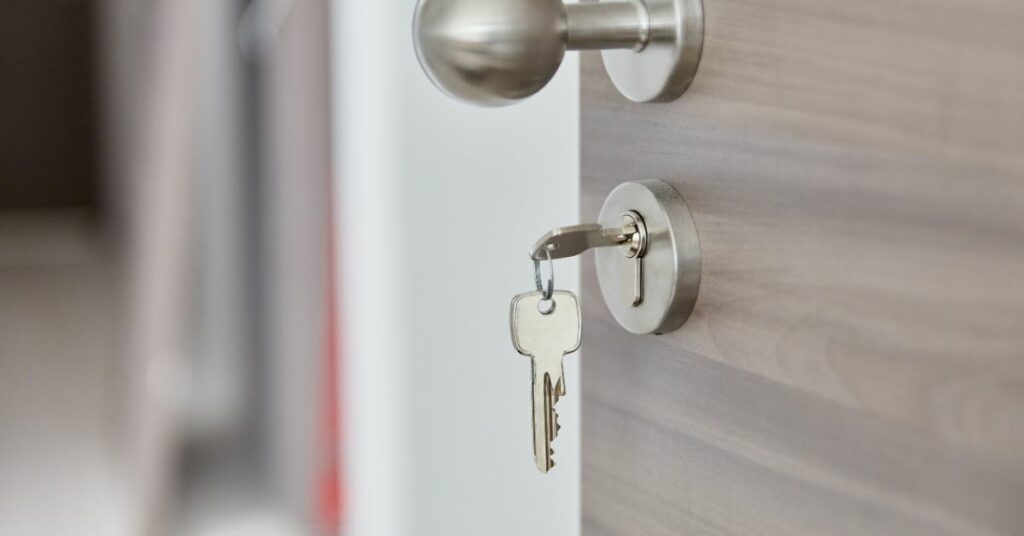The most important facts summarized
- Competition for apartments in popular areas can be tough. The key is persistence
- Avoid cases where an official address registration is not possible – you need the registration
- Provide detailed information about yourself when contacting landlords, e.g. your work situation and the documents you can provide to support your application.
- New listings appear daily, and apartments are often rented out within a few days. Be prepared to attend apartment viewings promptly
How to find an apartment in Germany
Finding accommodation in Germany can be difficult, especially if you are new to the country. That’s why in this post we’ve summarized everything you need to know to find accommodation in Germany quickly and efficiently. Have fun reading!
Download Cheat Sheet "Apartment in Germany"
- The best websites to find an apartment
- Examples of a successful application for an apartment

Short-term rental
A good place to start is to book a temporary furnished apartment. This gives you time to explore the city you’re moving to and decide where you want to live in the long term.
There are many good things about short-term rentals:
- With short-term rentals, you usually only have to fill out a few pieces of paperwork.
- It’s easy to book online: You can book furnished short-term apartments online from anywhere in the world. This way you can be sure that you will have accommodation when you arrive in Germany.
- Apartments with furniture: Most long-term rentals in Germany don’t have furniture, so short-term rentals are helpful because they come fully furnished. This way you have everything you need to feel at home in Germany right away.
- In most cases, you can also register through this apartment, which is a very important step in getting the papers you need to live in Germany. You can find out more about this process in the post: “Registering your address in Germany”.
To find short-term accommodation, you can use the website https://housinganywhere.com/, for example.
Long-term rental
If you are looking for long-term accommodation, you can search for an apartment or a shared flat (WG).
Here are three good websites to search for long-term housing that are most commonly used by government real estate agencies, landlords and independent property owners to post their listings:
- Immobilienscout24 (https://www.immobilienscout24.de/)
- Immowelt (https://www.immowelt.de/)
- Wg-gesucht (https://www.wg-gesucht.de/)
Create a profile on each of these sites and provide as much detailed information as possible.
Remember that popular listings are often posted and removed the same day, so it’s important to be one of the first to see a listing. Be prepared to send a message immediately. Have a message ready in German and English introducing yourself, your profession, your income and your lifestyle.
Don’t be discouraged if you don’t get an immediate response from many or any listings. It’s a numbers game and completely normal for landlords to receive many applications and take their time responding. Keep applying to multiple listings to improve your chances.
Documents required for long-term accommodation in Germany:
- Identity card/passport
- Salary slips: Provide your 3 most recent German payslips or an alternative proof of income if you are new to Germany.
- Employment contract: Present your German employment contract, regardless of whether you are a permanent employee or freelancer.
- Bank statement: Show your savings to cover the rent, preferably in a German bank account.
- SCHUFA credit report: Apply for a free SCHUFA credit report after you have opened a German bank account and registered your address (optional).
- Personal liability insurance: Take out insurance to protect against property damage.
- Rental debt free certificate: Obtain a signed document from your last landlord confirming that you have paid the rent in full and on time during the tenancy.
- Guarantee declaration: If no other documents are available, submit a letter from a guarantor who is willing to take over the rent payments if necessary (optional).
Note: Schufa is the abbreviation for “Schutzgemeinschaft für allgemeine Kreditsicherung”, which means “general credit protection agency” in English. Your Schufa score, Schufa information or Schufa rating is essentially your credit report in Germany. It reflects how reliably you have met your financial obligations, e.g. when paying utility bills and credit card payments. You can get a free Schufa report once a year by filling out a form on the website and submitting copies of your passport and registration certificate.
It’s helpful to create a single PDF file containing all of these documents so that you only have to attach one document to your application instead of several. It’s only a small difference, but it makes it easier for landlords to see all of your information at once.
Beware of scams
Also, be cautious of scams when exploring listings. Some listings are too good to be true. If you message one of these, you’ll discover that it’s fraud once they claim that you should set up a visit immediately, or send money in advance because they’re “out of town on business.”
❗You should never send money before meeting the people, or checking if the apartment is real.
❗ Be cautious with sharing personal data; provide documents only after viewing the apartment and redact unnecessary information to prevent identity theft. For example, a prospective landlord does not need your tax ID or passport number.
Summary
- Be persistent: Try to apply as much as you can. Competition for apartments in popular areas can be high. The key is perseverance.
- Check address registration possibility: Some subleases may not allow official address registration, so avoid these cases – You will need the registration
- Provide detailed information: Include detailed information about yourself when contacting landlords, such as your employment situation and the documents you can provide to support your application.
- Act quickly: New listings appear daily and apartments are often rented within days. Be prepared to attend apartment viewings promptly.
- Focus your search: Read listings carefully to ensure you are a suitable candidate for the apartment. Do not waste time on listings for which you are not suitable.
Download Cheat Sheet "Apartment in Germany"
- The best websites to find an apartment
- Examples of a successful application for an apartment

Learn the key terms
As you look, you’ll begin to see a lot of German words repeatedly, so let’s define some key terms and phrases.
- Kaltmiete — cold rent, or the base monthly rent without building utility costs or heating.
- Warmmiete — warm rent, or the base monthly rent plus heating.
- Nebenkosten — additional building utility costs, e.g. the price of maintaining the hallways and stairwells.
- Gesamtmiete — total rent, or the base monthly rent plus building utility costs and heating.
- Kaution — security deposit, typically three times the cold rent.
- Möbiliert — furnished.
- Saniert — refurbished, or a partial renovation.
- Renoviert — renovated, or a complete renovation.
- Altbau — old building, in which rooms typically have parquet floors and high ceilings with decorative mouldings.
- Neubau — new building, in which rooms typically have laminate floors and low ceilings.
- Wohnfläche — living area, or the total size of the entire place in square meters.
- WBS (Wohnberechtigungsschein) — permit for subsidized housing. If you see a listing that says WBS, it’s only available for people who have this permit.
- EBK (Einbauküche) — fitted kitchen. In Germany, an unfurnished flat typically means it doesn’t contain any furnishings at all, like a built-in kitchen. Don’t be surprised if you attend a viewing and the kitchen is completely empty, which means you’d have to purchase an oven, refrigerator and cabinets on your own when you move in.
- Vorderhaus, Hinterhaus, Seitenflügel — front house, side wings, rear house, or all the parts of a multi-building complex.
- Erdgeschoss — ground floor, sometimes at street level, sometimes elevated above street level.
- Dachgeschoss — attic floor, sometimes with normal ceilings, sometimes with arched ceilings.
- Aufzug — elevator, sometimes only available to tenants on certain floors.
- Schlafzimmer, Badezimmer, Wohnzimmer — bedroom, bathroom, living room. Be advised that a “2-room flat” means there are literally just two rooms, not two bedrooms.
- Provisionsfreie / null provision — no broker fee. In Germany, the Bestellerprinzip law dictates that whoever orders the brokerage service to show a property must pay the broker fee. So, if a landlord has hired a broker to show the flat, he/she must pay the fee. If you hire a broker to find a flat, you must pay the fee. The fee can only be two to three times more than the cold rent amount.
- WG (Wohngemeinschaft) — Flatshare.
- Zentralheizung — central heating.
- Etagenheizung — floor heating.
- Balkon/Terrasse — balcony/terrace.
- Garten — garden.
The most important questions
What does a landlord want to know?
Many landlords require the following proof of solvency:
- Proof of salary for the last three months.
- SCHUFA information.
- Rental debt-free certificate from the current or previous landlord.
Personal first impressions are also crucial. So be punctual, honest and polite when you introduce yourself to a landlord.
How can I find an apartment quickly?
Here are three good websites for finding long-term housing that are most commonly used by government real estate agencies, landlords and independent property owners to post their listings:
- Immobilienscout24 (https://www.immobilienscout24.de/)
- Immowelt (https://www.immowelt.de/)
- Wg-gesucht (https://www.wg-gesucht.de/)
Create a profile on each of these sites and provide as much detailed information as possible. Be quick with your application. It is not unusual for offers to disappear from the market after just one or a few days!
What should I pay particular attention to when searching?
Also, be cautious of scams when exploring listings. Some listings are too good to be true. If you message one of these, you’ll discover that it’s fraud once they claim that you should set up a visit immediately, or send money in advance because they’re “out of town on business.”
❗You should never send money before meeting the people, or checking if the apartment is real.
❗ Be cautious with sharing personal data; provide documents only after viewing the apartment and redact unnecessary information to prevent identity theft. For example, a prospective landlord does not need your tax ID or passport number.





